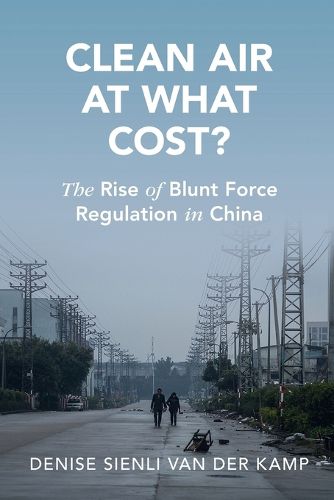Readings Newsletter
Become a Readings Member to make your shopping experience even easier.
Sign in or sign up for free!
You’re not far away from qualifying for FREE standard shipping within Australia
You’ve qualified for FREE standard shipping within Australia
The cart is loading…






China's green transition is often perceived as a lesson in authoritarian efficiency. In just a few years, the state managed to improve air quality, contain dissent, and restructure local industry. Much of this was achieved through top-down, 'blunt force' solutions, such as forcibly shuttering or destroying polluting factories. This book argues that China's blunt force regulation is actually a sign of weak state capacity and ineffective bureaucratic control. Integrating case studies with quantitative evidence, it shows how widespread industry shutdowns are used, not to scare polluters into respecting pollution standards, but to scare bureaucrats into respecting central orders. These measures have improved air quality in almost all Chinese cities, but at immense social and economic cost. This book delves into the negotiations, trade-offs, and day-to-day battles of local pollution enforcement to explain why governments employ such costly measures, and what this reveals about a state's powers to govern society.
$9.00 standard shipping within Australia
FREE standard shipping within Australia for orders over $100.00
Express & International shipping calculated at checkout
China's green transition is often perceived as a lesson in authoritarian efficiency. In just a few years, the state managed to improve air quality, contain dissent, and restructure local industry. Much of this was achieved through top-down, 'blunt force' solutions, such as forcibly shuttering or destroying polluting factories. This book argues that China's blunt force regulation is actually a sign of weak state capacity and ineffective bureaucratic control. Integrating case studies with quantitative evidence, it shows how widespread industry shutdowns are used, not to scare polluters into respecting pollution standards, but to scare bureaucrats into respecting central orders. These measures have improved air quality in almost all Chinese cities, but at immense social and economic cost. This book delves into the negotiations, trade-offs, and day-to-day battles of local pollution enforcement to explain why governments employ such costly measures, and what this reveals about a state's powers to govern society.